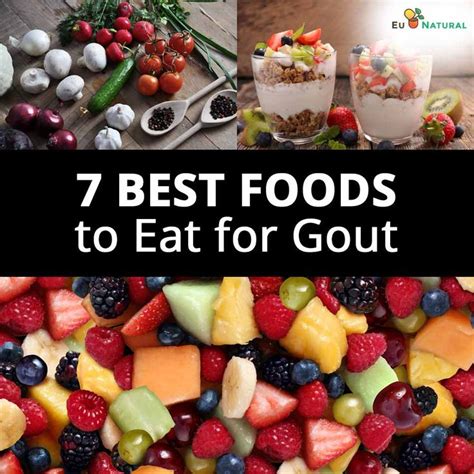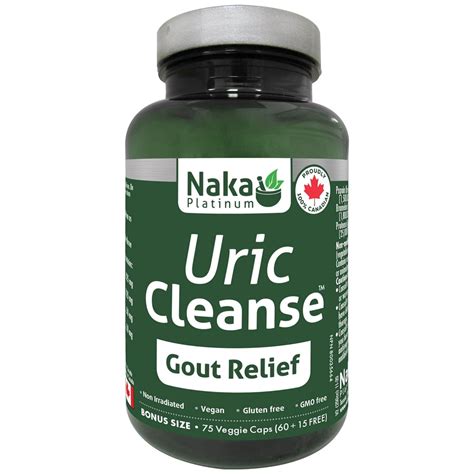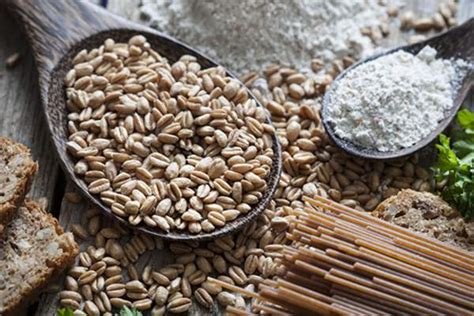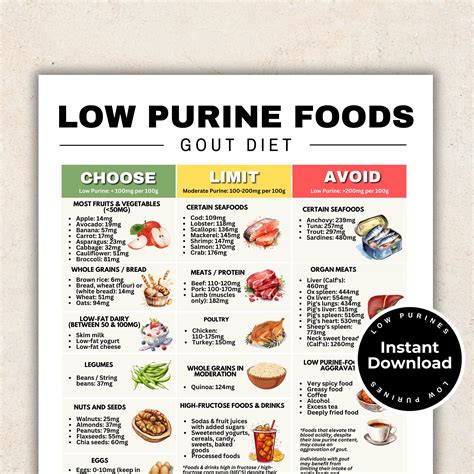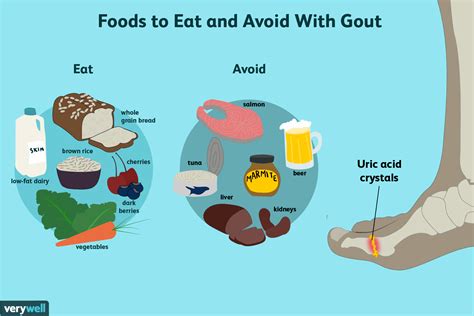Gout is a type of arthritis that causes sudden and severe joint pain, often affecting the big toe. It is caused by an excess of uric acid in the blood, which can be triggered by a variety of factors, including diet. While there is no cure for gout, making certain dietary changes can help alleviate symptoms and reduce the frequency of attacks. In this article, we will explore the best foods to eat for gout relief and provide tips on how to manage this condition through nutrition.
Gout is a common condition that affects millions of people worldwide. It is characterized by sudden and intense pain, swelling, and inflammation in the affected joint. The condition can be debilitating, making it difficult to perform everyday activities. While medication can help manage symptoms, dietary changes can play a crucial role in reducing the frequency and severity of gout attacks. By incorporating the right foods into your diet, you can help reduce uric acid levels and alleviate symptoms.
The relationship between diet and gout is complex, and certain foods can trigger or worsen symptoms. Foods that are high in purines, such as red meat, seafood, and beer, can increase uric acid levels and trigger gout attacks. On the other hand, foods that are low in purines and rich in antioxidants, such as fruits, vegetables, and whole grains, can help reduce inflammation and alleviate symptoms. In the following sections, we will explore the best foods to eat for gout relief and provide tips on how to incorporate them into your diet.
Introduction to Gout-Friendly Foods
Gout-friendly foods are those that are low in purines and rich in antioxidants, vitamins, and minerals. These foods can help reduce uric acid levels, alleviate symptoms, and reduce the frequency of gout attacks. Some of the best foods for gout relief include fruits, vegetables, whole grains, lean proteins, and low-fat dairy products. In the following sections, we will explore each of these food groups in more detail and provide tips on how to incorporate them into your diet.
Fruits for Gout Relief
Fruits are some of the best foods for gout relief. They are rich in antioxidants, vitamins, and minerals, and can help reduce inflammation and alleviate symptoms. Some of the best fruits for gout relief include:
* Cherries: Cherries are one of the most effective fruits for gout relief. They are rich in antioxidants and have anti-inflammatory properties, which can help reduce uric acid levels and alleviate symptoms.
* Berries: Berries, such as blueberries, raspberries, and strawberries, are rich in antioxidants and have anti-inflammatory properties, which can help reduce inflammation and alleviate symptoms.
* Citrus fruits: Citrus fruits, such as oranges, lemons, and limes, are rich in vitamin C, which can help reduce uric acid levels and alleviate symptoms.
Vegetables for Gout Relief
Vegetables are another important food group for gout relief. They are rich in antioxidants, vitamins, and minerals, and can help reduce inflammation and alleviate symptoms. Some of the best vegetables for gout relief include:
* Leafy greens: Leafy greens, such as spinach, kale, and collard greens, are rich in antioxidants and have anti-inflammatory properties, which can help reduce uric acid levels and alleviate symptoms.
* Cruciferous vegetables: Cruciferous vegetables, such as broccoli, cauliflower, and Brussels sprouts, are rich in antioxidants and have anti-inflammatory properties, which can help reduce inflammation and alleviate symptoms.
* Root vegetables: Root vegetables, such as carrots, sweet potatoes, and beets, are rich in antioxidants and have anti-inflammatory properties, which can help reduce uric acid levels and alleviate symptoms.
Whole Grains for Gout Relief
Whole grains are an important food group for gout relief. They are rich in fiber, vitamins, and minerals, and can help reduce uric acid levels and alleviate symptoms. Some of the best whole grains for gout relief include:
* Brown rice: Brown rice is a good source of fiber, vitamins, and minerals, and can help reduce uric acid levels and alleviate symptoms.
* Quinoa: Quinoa is a complete protein and is rich in fiber, vitamins, and minerals, which can help reduce uric acid levels and alleviate symptoms.
* Whole wheat: Whole wheat is a good source of fiber, vitamins, and minerals, and can help reduce uric acid levels and alleviate symptoms.
Lean Proteins for Gout Relief
Lean proteins are an important food group for gout relief. They are low in purines and rich in antioxidants, vitamins, and minerals, which can help reduce uric acid levels and alleviate symptoms. Some of the best lean proteins for gout relief include:
* Chicken: Chicken is a low-purine protein that is rich in antioxidants, vitamins, and minerals, which can help reduce uric acid levels and alleviate symptoms.
* Turkey: Turkey is a low-purine protein that is rich in antioxidants, vitamins, and minerals, which can help reduce uric acid levels and alleviate symptoms.
* Fish: Fish, such as salmon and tuna, are low in purines and rich in antioxidants, vitamins, and minerals, which can help reduce uric acid levels and alleviate symptoms.
Low-Fat Dairy Products for Gout Relief
Low-fat dairy products are an important food group for gout relief. They are low in purines and rich in antioxidants, vitamins, and minerals, which can help reduce uric acid levels and alleviate symptoms. Some of the best low-fat dairy products for gout relief include:
* Milk: Milk is a low-purine dairy product that is rich in antioxidants, vitamins, and minerals, which can help reduce uric acid levels and alleviate symptoms.
* Yogurt: Yogurt is a low-purine dairy product that is rich in antioxidants, vitamins, and minerals, which can help reduce uric acid levels and alleviate symptoms.
* Cheese: Cheese is a low-purine dairy product that is rich in antioxidants, vitamins, and minerals, which can help reduce uric acid levels and alleviate symptoms.
Foods to Avoid for Gout Relief
While incorporating gout-friendly foods into your diet is important, it is also important to avoid foods that can trigger or worsen symptoms. Some of the foods to avoid for gout relief include:
* Red meat: Red meat is high in purines and can trigger or worsen gout symptoms.
* Seafood: Seafood, such as shrimp and lobster, is high in purines and can trigger or worsen gout symptoms.
* Beer: Beer is high in purines and can trigger or worsen gout symptoms.
* Sugary drinks: Sugary drinks, such as soda and sports drinks, are high in sugar and can trigger or worsen gout symptoms.
Tips for Managing Gout Through Diet
Managing gout through diet requires a comprehensive approach that includes incorporating gout-friendly foods and avoiding foods that can trigger or worsen symptoms. Here are some tips for managing gout through diet:
* Stay hydrated: Drinking plenty of water can help flush out uric acid and reduce the risk of gout attacks.
* Eat a balanced diet: Eating a balanced diet that includes a variety of fruits, vegetables, whole grains, lean proteins, and low-fat dairy products can help reduce uric acid levels and alleviate symptoms.
* Avoid trigger foods: Avoiding foods that can trigger or worsen gout symptoms, such as red meat, seafood, and beer, can help reduce the frequency and severity of gout attacks.
* Consider supplements: Certain supplements, such as vitamin C and omega-3 fatty acids, may help reduce uric acid levels and alleviate symptoms.
What are the best foods for gout relief?
+
The best foods for gout relief include fruits, vegetables, whole grains, lean proteins, and low-fat dairy products. These foods are low in purines and rich in antioxidants, vitamins, and minerals, which can help reduce uric acid levels and alleviate symptoms.
What foods should I avoid for gout relief?
+
Foods to avoid for gout relief include red meat, seafood, beer, and sugary drinks. These foods are high in purines and can trigger or worsen gout symptoms.
Can diet alone manage gout symptoms?
+
Diet can play a crucial role in managing gout symptoms, but it may not be enough to manage symptoms alone. Medication and lifestyle changes, such as regular exercise and stress management, may also be necessary to manage gout symptoms effectively.
In conclusion, managing gout through diet requires a comprehensive approach that includes incorporating gout-friendly foods and avoiding foods that can trigger or worsen symptoms. By making dietary changes and staying hydrated, individuals with gout can reduce uric acid levels, alleviate symptoms, and improve their overall quality of life. We encourage readers to share their experiences with gout and provide tips on how they manage their symptoms through diet. Additionally, we invite readers to comment on the article and suggest future topics related to gout and nutrition. By working together, we can provide valuable information and support to individuals living with gout and other related conditions.
